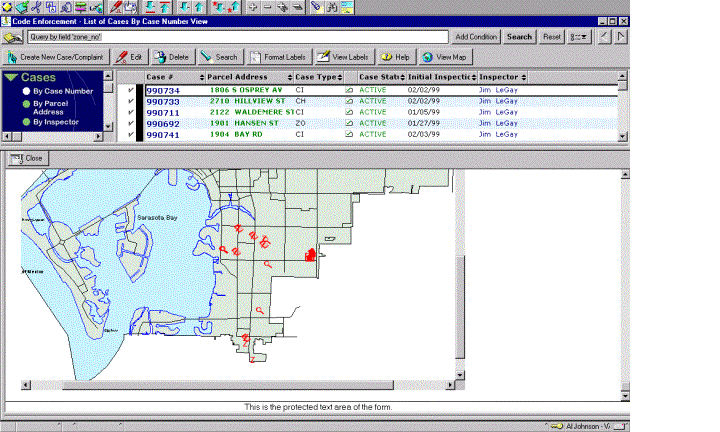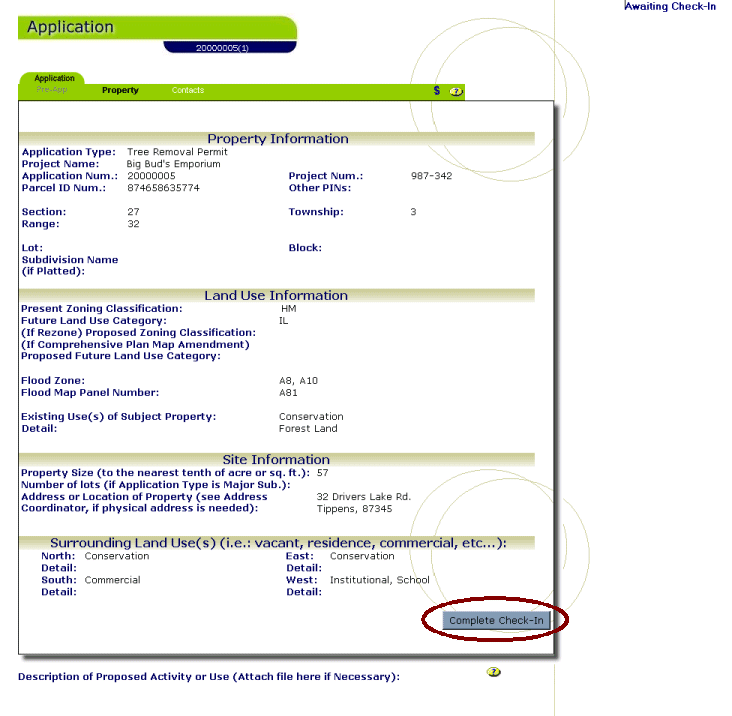Online Collaborative Communities –
New Methods of Service Delivery
Jay Thatcher
Natalie Lane Hoel
Abstract
Local Governments can experience significant disparities between public expectations and internal resources. Government is expected to provide high quality services in the ‘24/7’ economy. Conversely, many government operations utilize manual methods or still separate GIS data from business processes and workflow, resulting in significant inefficiencies.
Governments vary in the level of collaboration that occurs between departments. Manual interfaces provide limited methods to exchange data. The data sharing model incorporates a common data repository to ensure data access and currency. Finally, the shared process model provides true collaborative benefits, where data and processes are intertwined to maximize decision-making and efficiencies.
Today’s government needs to respond to the cry for a ‘one stop, self help’ model of enabling government services and integrating information and processes traditionally possessed by the GIS, Tax, Building and Zoning, and Licensing Departments. To meet this need, Akanda is delivering the Online Collaborative Community, a framework for government services that combines collaborative and Internet technologies with business processes and workflow. This model addresses the current challenges of government, and provides flexible and interactive mediums to deliver services.
Examples of successful Collaborative Community implementations, highlighting Akanda’s COLATE (Collaborative Community Teaming Environment) suite – including embedded Esri technology - will include the successes enjoyed by the City of Sarasota and City of Houston. Focus will be directed to enterprise solutions that empower staff and citizens to re-invent government services.
Akanda is an Esri business partner and long time developer with expertise in MapObjects, SDE, Domino and Oracle. We have successfully integrated mapping components within our collaborative workflow applications to provide map visualization and reporting for the non-GIS expert. This inline map process connects to any Esri supported database warehouse, including SDE/Oracle.
Introduction
Local Government – both municipal and county – is often caught in the middle of divergent demands. Operating budgets can dictate limited staff sizes and increased workloads. Technologies can become outdated without continued funding or internal resources to provide the tools to do business. Conversely, people dealing with local government – taxpayers and private and public sector organizations – demand improved access to government, increased service. Combined, local governments face a range of challenges, which in many cases grow beyond their means.
The above situation still applies to many governments; for others, partially completed or departmental solutions have addressed a shorter term need in a band-aid fashion. Innovators – those who choose to lead rather than follow – are more rare. Sarasota, Florida and Houston, Texas, are two innovators who have meet the local government challenge head on and succeeded. Their strategy to delivery service, and the focus of this paper, was to create an Online Collaborative Community using Akanda’s COLATE (Collaborative Teaming Environment) – an Internet and GIS-based framework for providing a fully integrated set of services.
Focus through this paper will discuss the justification, strategy and results experienced by Sarasota and Houston in developing and maintaining their Online Collaborative Communities.
Background – Sarasota
Sarasota is a city of 65,000, perhaps best known as a winter vacation haven. While residents and visitors to the City were enjoying its beaches and sun, the City’s internal operations were not as tranquil.
Operationally, the City had a series of COBOL applications for departmental functions including building permits and business licensing.
The reliance on the data in these applications, compounded by the inoperability with other systems, non-Year 2000 compliance and support problems, made for a strong technical argument for system replacement. Further, City Information Systems staff had aspirations of a much more integrated and sophisticated enterprise system that involved GIS, workflow and messaging to best manage City responsibilities such as code enforcement and development tracking review. The City envisioned all departmental applications having the same look-and-feel and access to an enterprise of data. GIS would be embedded into each application, offering a unifying and visual interface to data.
Overall justification for replacing the COBOL applications with an integrated approach were:
Background - Houston
With a population of nearly 2 million, Houston is the fourth largest city in the U.S. The growth of the Houston area is the continual and strong – it is the third fastest growing of the ten largest U.S. metropolitan areas.
The population base and growth rate of Houston has placed considerable demand on its internal resources and processes, particularly in the development tracking and mapping area. The previous situation isolated development tracking and GIS:
The mixture of booming land development demands and inefficient methods to track and review applications for development was a strong qualifier for implementing a new solution for Houston.
Common Ground
The Sarasota and Houston cases share several common threads:
The Change Process
The change process has varied noticeably between Sarasota and Houston, a result of previous systems and technology available at the time of change.
Sarasota had already installed Lotus Notes as their messaging and workflow platform when the project to replace their COBOL departmental applications commenced. This situation provided to be very timely, as Notes laid the foundation for future replacement to the COBOL applications, where GIS and departmental process functionality would be added to a Notes/Domino application.
Sarasota decided to follow a hybrid development approach, where custom developed applications would be built upon their Notes platform. MapObjects would be used to add a spatial dimension to the applications, leveraging the City’s mapping investment.
Over a span of two years, five applications were defined by the City and designed, implemented and supported by Akanda:
Internet enablement was identified in the project planning phase as a longer term goal for the application suite.
Figure 1 below shows a building permit application for Sarasota.

Houston has been a comparatively late adopter of Online Collaborative Communities, with project planning starting in 1999. However, the two years between the project starts for Sarasota and Houston have seen a significant change in the role of the Internet. Accordingly, Houston’s COLATE solution – also Lotus Notes based - will be fully Internet enabled.
Houston’s process involved the removal of the dial-up server for posting plats and the paper development tracking process. The replacement COLATE solution involves a completely Internet-enabled end-to-end system to accept online development applications, manage and track the application process, and accept input from outside commenting agencies (e.g. utility companies). Highlights of the Houston implementation include:
The development review process for Houston is displayed in Figure 2.

Current State
Sarasota’s COLATE implementation has been in daily production, with ongoing product and technical support from Akanda. Web enabling applications is currently underway. Overall, COLATE has provided the City with a seamless enhancement to their existing messaging system that transcends departmental approaches to provide true enterprise data access.
Houston’s COLATE implementation is in beta stage, with completion scheduled for August 2000.
Conclusions
Sarasota and Houston represent two cities who have harnessed the enterprise wide benefits of collaborative approaches to local government management. While the role of the Internet in the COLATE deployment for each City differs, each City has replaced older, inefficient processes with Internet based approaches to doing business.
Acknowledgements
The staff at the City of Sarasota and City of Houston are to be commended for their enthusiasm and commitment during each project.
Author Information / Contact Information
Jay Thatcher
Project Manager
Akanda Innovation
175 Commerce Valley Drive W.
Thornhill, ON L3T 7P6
Canada
(905) 886-4166 x2227
jthatcher@akanda.com
www.akanda.com
Natalie Lane Hoel
Program Manager
Akanda Innovation
175 Commerce Valley Drive W.
Thornhill, ON, L3T 7P6
Canada
(905) 886-4166 x2227
nhoel@akanda.com
www.akanda.com